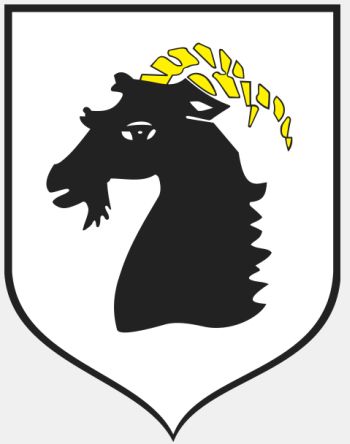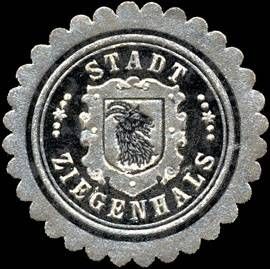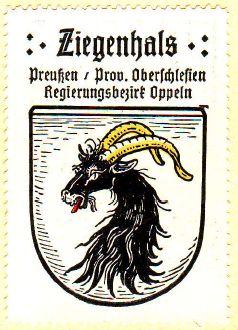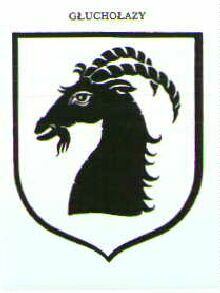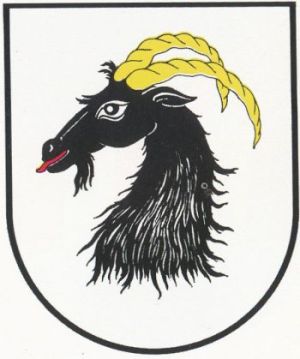Głuchołazy: Difference between revisions
Jump to navigation
Jump to search
Knorrepoes (talk | contribs) m (Text replacement - "|Arms of {{PAGENAME}}" to "|Arms (crest) of {{PAGENAME}}") |
Knorrepoes (talk | contribs) m (Text replacement - "====Origin/meaning====" to "===Origin/meaning===") |
||
| Line 11: | Line 11: | ||
===Origin/meaning=== | |||
The arms of the city show a goat's head, which is a canting symbol for the German name of the city, Ziegenhals (Ziege=goat, Hals=neck). The image already appeared on the oldest seal of the city, known from 1404. All later seals show the same image, but the head is sometimes facing left, instead of right as in the above arms. Also the colours of the horns ans the tongue often differed, see images below. | The arms of the city show a goat's head, which is a canting symbol for the German name of the city, Ziegenhals (Ziege=goat, Hals=neck). The image already appeared on the oldest seal of the city, known from 1404. All later seals show the same image, but the head is sometimes facing left, instead of right as in the above arms. Also the colours of the horns ans the tongue often differed, see images below. | ||
Revision as of 18:39, 22 June 2017
GŁUCHOŁAZY
Official blazon
Origin/meaning
The arms of the city show a goat's head, which is a canting symbol for the German name of the city, Ziegenhals (Ziege=goat, Hals=neck). The image already appeared on the oldest seal of the city, known from 1404. All later seals show the same image, but the head is sometimes facing left, instead of right as in the above arms. Also the colours of the horns ans the tongue often differed, see images below.
| Seal from around 1900 |
The arms by Hupp in the Kaffee Hag albums +/- 1925 |
| The arms in the 1980s |
The arms shown in 1994 |
Contact and Support
Partners:
Your logo here ?
Contact us
© since 1995, Heraldry of the World, Ralf Hartemink 
Index of the site
Literature : Plewako and Wanag, 1994; Hupp, 1894
